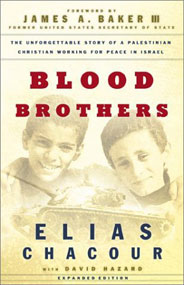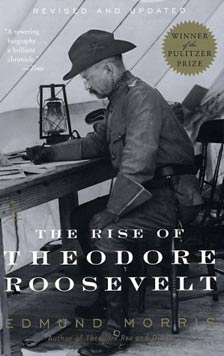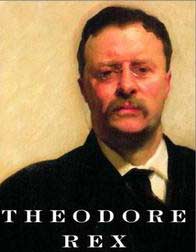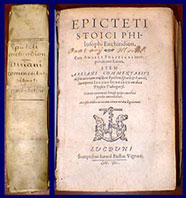
Elias Chacourt is a Melkite Catholic priest and a Palestinian. Blood Brothers is at once the story of Elias’ life growing up by the Sea of Galilee and an impassioned plea for reconciliation between the forces that have torn that area apart during this last century. It is a simple, beautiful, and deeply moving story of one man’s work to heal the conflict in his homeland. The title comes from Elias recalling his father inviting Jewish neighbors in for tea when Elias was a young boy, explaining to the children that the Jews and the Palestinians were “Blood Brothers” as they shared the same father Abraham.
What is so striking to me is the absence of a balanced view of the Israeli Palestinian conflict in what we Americans have been told over the last several decades by our government and the press. What most Americans do not know is that in the late 40s the Israeli zionists forced the Palestinians off of the land on which they and their ancestors had lived for hundreds of years, thus setting off the division and conflict that we live with today. No wonder Palestinian militants are blowing themselves up. They want their land back.
Continue reading →

Edmund Morris’ Pulitzer Prize winning The Rise of Theodore Roosevelt is a fast and fascinating read from beginning to end. First published in 1979 Morris interviewed many who knew Teddy well, including two daughters and a son, to paint a vivid picture of the man. The Rise starts with the birth of Theodore to a wealthy New York family, descendents of some of the first Dutch settlers in New Amsterdam. The book follows Teddy through his sickly but precocious childhood, his years at Harvard, his first and second marriages, his entrance into politics as a state assemblyman, his years out west as a cowboy and rancher, his return to politics as a federal civil service reform commissioner, his return to New York as a reform police commissioner, back to Washington as Assistant Secretary of the Navy, his bravery as the colonel leading the regiment of “Rough Riders” to victory in Cuba, his election as Governor of New York, and finally his election as Vice-President of the United States. All accomplished before the age of forty-five.
Continue reading →

When my brother John first told me about Why Catholics Can’t Sing, I nearly fell off my chair laughing. Someone had actually written a book about this phenomenon? Every since I started going to church again after a several year absence I have been complaining to all who would listen about the atrocious music sung in Catholic masses these days. It’s not that Catholics can’t sing, it’s that they don’t. Who wants to sing unremarkable music? I love to sing and I rarely do in mass. The reason is that most of the music is some 70s holdover sappy pop folk stuff that hurts my ears to hear, especially when accompanied by guitar strummers. Whatever happened to the music I loved as a little girl in the early 60s? Faith of our Fathers, O Santissima, Holy God We Praise Thy Name? When I asked my mother why our music was so bad, especially compared to that of the Episcopalians, she replied that 1) we believe that the music should not detract from the mass, and 2) that great church music sounds too much like Protestant music and we need to be different. Not that she believes either of these reasons to be sufficient justification for bad music, it’s just that these are the reasons that are typically given.
Detract from the mass? What is more of a distraction than poorly sung bad music? Try to be different from the Protestants? Why? We have the most beautiful, glorious music in our Catholic heritage and no one is growing up knowing it.
Continue reading →

Theodore Rex is the second installment of a three part series on the life of Teddie Roosevelt by Edmund Morris. Following Morris’ Pulitzer prize winning The Rise of Theodore Roosevelt, Theodore Rex examines Teddie’s years as President starting with his journey to Washington after upon learning of the assassination of President McKinley. This well researched account covers in colorful detail Roosevelt’s political brilliance in concluding the Panama Canal Treaty, his tactful negotiations to broker and end to the Russo-Japanese war, his political courage in invoking the Sherman Act and pursuing anti-trust judgements against the most powerful industrial trusts in the land, his Pure Food bill, and finally the environmental legacy Roosevelt left to this country with the establishment of most of the national parks and monuments we enjoy today. Theodore Rex clearly shows why Teddie Roosevelt is considered one of our greatest presidents and well deserves his place at Mt. Rushmore among Washington, Jefferson, and Lincoln.

My father first introduced me to the works of Ryszard Kapuscinski through The Emperor, Kapuscinski’s unnerving examination of Emperor Haile Selassie’s rule in Ethiopia told through the eyes of former members of Selassie’s court. With The Shadow of the Sun, Kapuscinski spreads his journalist reach throughout the continent of Africa revealing its mosaic of cultures, histories, tribal worldviews and indomitable geography. Kapuscinski is Poland’s most renowned journalist. First arriving in Africa in 1957, he lived there off and on for 40 years observing countless coups and managing to contract malaria as well as tuberculosis. Unlike most European visitors who kept to the safe, wealthy areas, Kapuscinski wanted to know how everyday people – tradesmen, bus drivers, medical aides – lived. In this book Kapuscinski describes the centuries old conflict between the Hutus and the Tutsis that resulted in the extraordinary genocide the world observed in the 90s. He writes of the fundamental differences in how people of different African tribes view themselves in relation to the rest of the world, and how these differences often lead to tragedy incomprehensible to the Western mind. Also revealing was the history of the former American slaves who founded Liberia in the early 1800s only to enslave the surrounding local population for the next 100 years.
Continue reading →





